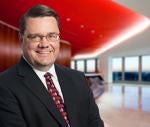The Illinois Court of Appeals recently affirmed the trial court’s denial of a motion for new trial finding that a fire protection engineer was qualified to testify as an expert regarding the cause and origin of the fire and that the testimony did not usurp the role of the jury. In Unitrin Preferred Ins. Co. v. Dovra, 2, N.E.3d 360 (Il. App, 2013), Unitrin was the subrogee of the Tuluces that brought action against a flooring contractor that worked on the insureds’ home shortly before it was damaged by fire seeking to recover for the fire damage. The trial court entered judgment on a jury verdict in favor of the contractor and denied Unitrin’s motion for new trial. Unitrin appealed.
At trial, the jury found that FGD’s actions in applying flooring finish to the Tuluce home was not the proximate cause of the fire and ruled in favor of FGD. FGD presented expert witness testimony on the issue of the cause and origin of the fire. On appeal, Unitrin contended that (1), the trial court erred in allowing FGD’s profit expert witness, and (2) the expert witness testimony usurped the role of the jury and prejudiced Unitrin.
The Tuluces contracted with FGD to install and finish hard wood flooring in the Tuluce home. FGD was to complete the flooring work at the Tuluce home and apply Synteko floor finish to the first floor of the home. The Synteko floor finish was a flammable liquid and vapor. The Synteko product warned users to eliminate all pilot lights and to keep the house ventilated when using the product. After finishing work for the day, the FGD employees went home at approximately 5:00 p.m. At approximately 8:30 one of the FGD employees returned to the residence to retrieve equipment and to see if the floor had dried. The following day the Tuluce family returned to their home and discovered the Berrington Fire Department had been summoned. The fire was extinguished and the fire department’s investigation began. Unitrin paid just over $900,000 to the Tuluces and sought recovery through subrogation by filing suit against FGD.
Both parties retained experts and each came to a different conclusion as to the cause and origin of the fire. In addition to the conflicting fire cause and origin opinions, there was also conflicting testimony from firefighters who were at the scene. One firefighter testified the fire originated in the first floor kitchen. He came to that conclusion based upon burn patterns. Another firefighter testified during his extinguishment of the fire, he stood on the kitchen countertop and kicked the television set off the countertop. He said there was no fire on the kitchen countertop or the television. It was noted that FGD’s expert had a degree in combustion science and had been involved in NFPA associations, including NFPA 921 for years. The court noted that NFPA 921 had been an important and widely used reference source in fire and cause origin determinations since its inception in 1992. FGD’s expert opined that Unitrin’s expert opinion as to the cause and origin of the fire was inconsistent with the evidence.
Prior to trial, Unitrin moved in limine to exclude the testimony of Dr. Mauer arguing that he was not competent to testify based upon his qualifications. Unitrin argued that FGD’s expert lacked the qualifications to indirectly opine as to the cause and origin of the fire because he was not an expert in the field of fire cause and origin. Instead, it argued that he was a fire protection engineer, which is different from a fire cause and origin expert. It further argued that his methodology in reviewing photographs to reach its conclusion was improper. Finally, it argued that allowing the expert to testify as to the cause and origin of the fire was cumulative of the testimony of FGD’s expert.
The trial court initially barred FGD’s expert from testifying as to his opinion on the cause and origin of the fire, expressing there was a serious question about whether he was qualified to express an opinion as to the fire’s origin. However the court did allow FGD’s expert to discuss his familiarity with NFPA 921 because it found he was qualified to discuss NFPA 921.
At trial, Unitrin’s expert testified the fire originated in the basement of the Tuluce home near a furnace. He determined that the fire was caused by flooring finish that dripped down a floor duct and into the basement where vapors from the flooring finish were ignited by a furnace pilot. FGD’s origin and cause expert testified the fire originated on a kitchen countertop near a television set and was caused by an undetermined electrical fault in the television. Both experts stated that their findings were based on the application of a scientific method used for developing hypothesis about cause and origin of fires set forth by NFPA 921. It is important to note that Unitrin did not cross-examine FGD’s expert on his academic background or qualifications, even though that formed the basis of their new trial motion.
The jury returned a verdict in favor of FGD and against Unitrin. Unitrin subsequently filed a motion for new trial, which the trial court denied.
The appellate court set forth the standard of an abuse of discretion in reviewing a trial court’s ruling on a motion for new trial. The court abuses its discretion only where its ruling is arbitrary, fanciful, or unreasonable, or where no reasonable person would adopt the court’s view. (citations omitted).
On appeal, Unitrin argued that the trial court abused its discretion when it allowed Dr. Mauer to offer indirect opinion testimony as to the origin and cause of the fire. In response, FGD argued that his expertise in combustion science and his utilization of NFPA 921 qualified him to testify as to the cause and origin of the fire.
After reciting Illinois Rule of Evidence 702 (which mirrored FRE 702), the appellate court found that Unitrin’s argument that the trial court erred in admitting FGD’s expert was unassailing. It concluded that FGD’s expert was qualified to testify about the origin and cause of the fire.
An important practice can be gleaned from the Unitrin opinion. Although not explicitly addressed, Unitrin’s failure to cross-examine FGD’s expert on his qualifications was likely a significant factor in allowing the expert’s opinion. It can hardly be argued that an expert was unqualified if such an argument was not made before the jury at trial. It is unclear from the opinion if Unitrin made timely objection to FGD’s expert qualifications and opinions based upon lack of foundation.





 />i
/>i

